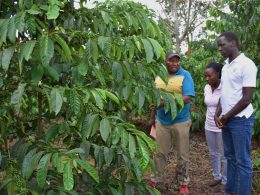By Mark Kawalya
Twiga a startup that operates an e-commerce food distribution B2B platform in Kenya, has launched a new subsidiary of its business. Dubbed ‘Twiga Fresh’, the branch will carry out farming and distribute its own agricultural produce to traders.
According to Twiga personnel, the startup is already producing horticultural farm produce like watermelons, onions on the company’s 650-hectare land that is capable of producing more than 150,000 tons of fresh produce annually. The firm has so far injected $10 million into Twiga Fresh, which has been assured by debt from development financial institutions.
Twiga uses technology to link smallholder farmers to traders, giving them ready access to new markets and a larger pool of produce buyers while optimizing food supply chains. However, Twiga has had traceability challenges, produce stock outs, and price volatility, which have interfered with the company’s core goal of delivering affordable produce in an effort to contribute to food security. With the addition of Twiga Fresh to its brand portfolio, the firm projects better control of its production mechanisms.
“The volumes for other fresh products were low because we made a decision not to scale fresh produce where we did not have traceability from a food safety standpoint,” Twiga CEO and co-founder Peter Njonjo said in an interview, adding that the new business will not affect many farmers.
However, Twiga reassured farmers that it would continue sourcing some produce like bananas from partner farmers to serve the more than 45,000 traders it supplies every month. This decision stems from the fact that such produce has more established value chains, making them more predictable to work with.
The startup owns one of the largest commercial fresh produce farms that targets the local market since most of the large horticultural farms in East Africa are geared towards exporting their harvest to foreign markets.
“Most of the Africa-based investment in modern commercial farming has been made in the export-oriented industry over the years because of the low formality of the domestic food market. This has led to decreasing productivity of local farming, which has impacted both quality and pricing in the market, “said Njonjo who founded the company with ex-CEO Grant Brooke.








